Adopting a dog is one of the best decisions you can make!
You’re helping save a pup’s life and you and your family get another furry friend to love on.
It’s a win-win!
But I see so many pet owners choose their rescue dog based purely on looks. They head over to the shelter and browse around until they find the CUTEST dog to take home with them.
Or they watch a movie starring a really cool dog and think “Man, that’s the dog I want!” based purely on how it’s portrayed in the film.
One that comes to mind is the new movie Dog. Starring Channing Tatum and a highly trained Belgian Malinois, this film playfully depicts the struggles that come with owning this type of dog.
Belgian Malinois typically require a highly experienced owner and are considered a more challenging dog breed. But so many people will see the movie and think the breed is really cool and want one for their family.
In fact, searches for Belgian Malinois have gone up 200%!
The dangerous part about this is people will adopt this breed without understanding the amount of time, training, and experience a dog like this needs. In these situations, the dog is usually returned to the shelter when it becomes more than the adopter can manage.
Adopting a dog is supposed to keep dogs out of shelters…And create happy, healthy homes where every family member (including the pup) can grow and thrive!
Now, I’m not saying that there are bad dogs, or bad breeds.
With proper training, ANY dog can make a great family member in your household!
HOWEVER…
There are more challenging dog breeds that need more serious training or a more knowledgeable owner based on their level of intelligence, energy, and so many other factors.
So it’s important to consider all of those factors before you just adopt a cute puppy.
Doing your research is KEY to finding the right dog for your home and ensuring we keep dogs out of rescues. It’s important for EVERYONE!
And I always recommend you get a Doggy DNA test, because it reveals so much about your pup. Click here to find out everything a Doggy DNA test can tell you!
How do you find the right dog for you?
Let’s find out!
Take Time to Learn About Each Breed’s Most Common Characteristics
Every dog breed has a specific set of genes that make it predisposed to certain behaviors.
Herding dogs, like the Border Collie above, were bred to gather and control sheep and are known for their unlimited amounts of energy, extreme intelligence, and working drive. So, if you adopt a dog like this, you’ll need to give them A LOT of physical and mental exercise.
It’s important that you do your research to understand each breed so you can determine the best fit for your family. If you like to lounge around and watch movies, a Border Collie won’t be the dog for you, no matter how cute they are.
Understanding temperament and personality characteristics about a breed before you adopt is so important, but don’t forget about basic features like size and coat length.
Do you want a big dog or a small dog?
One that will need a lot of grooming or a more low-maintenance dog?
Will a dog be comfortable in the climate you live in?
The breed can determine all of these features.
After all, having a Husky in Southern California might mean they’re at risk for overheating and will likely shed a lot.
I’m not going to get into every dog breed here…it would take a while…but there are countless resources to learn the ins and outs of different dog breeds.
If you have any questions, turn to the professionals. Drop your questions about dog breed in the comments – I’ve worked with so many pet owners that I’m happy to help address your most pressing questions!
After learning more about different breeds and their characteristics, you’ll need to take a close look at your family dynamic…
Consider How Different Dog Breeds Will Fit in Your Lifestyle
Once you know a bit more about certain breeds and the kind of care and attention they’ll need, you can begin to see how they would fit within your family dynamic.
Do you enjoy taking long hikes? Then a high-energy dog would be perfect for your family!
Do you want to avoid lots of shedding in your house? Then a breed with a short coat is for you.
Do you have a small apartment? Then you might want to consider a small breed.
Do you have other dogs? Then you’ll want to get a breed that is dog-friendly and compatible with other animals in the household.
There are so many considerations in choosing the perfect breed for your family.
But now that you’ve done a little research, you need to take a close look at your lifestyle to determine the best dog breed for your family.
And don’t forget about the time commitment of training.
Because training your pup is not a one-and-done type of interaction. It’s not just puppy obedience classes. It’s a lifelong commitment to behaviors that need to be cultivated and reinforced over time.
Becoming a dog owner is a major lifestyle change. If you want to know if you’re ready to adopt a dog (especially if it’s a more challenging dog breed), check out my blog that asks you five questions to find out if you’re ready for a puppy.
Depending on what breed you get, the amount of time you’ll need to spend training your pup will vary significantly.
Breeds like the Belgian Malinois I mentioned earlier, or German Shepherds, require more training than your average dog. This means you’ll need to dedicate so much more time to exercising your dog’s brain.
I want to say it again, but even if you end up with a “difficult” dog, there is no such thing as a bad dog or a bad breed.
You just need to invest more time and energy into training your pup.
And I’ve got the perfect solution for you.
It’s my Dog Calming Code™ program, which has helped over 88,000 dog parents just like you’re about to be!
It gives you all the tools you need to get your dog to listen and understand you in any situation.
Check it out to see how it can help you and your family set a solid foundation of training and build an unbreakable bond between you and your four-legged friend.
Knowing which type of dog will fit into your family dynamic and the training involved will set you up for a lifetime of bonding and happiness with your new family member.
Your experience level and knowledge also play a role in the best dog breed for you…
Always Understand Your Limitations as a Dog Owner
There are dog breeds that are known for being mischievous, stubborn, and even aggressive.
Proper training can help alleviate these unwanted behaviors, but if you’re a first-time dog owner, specific breeds can pose a greater challenge than you will be able to handle.
German Shepherds are one of the breeds that require CONSISTENT training. If you’re an experienced and confident dog owner and have the knowledge to work with this type of breed, then you’ll have no problems.
The issue arises when dog owners overestimate their capabilities.
Do you have what it takes to train the breed you want?
If not, it might be best to go with another breed.
Knowing your limitations as an owner can be the key to bringing home a dog that will fit right in and bring a smile to your face every day!
Most Importantly, Don’t Rush Your Decision
Adding a new dog to your family is a MAJOR life change, and one that shouldn't be taken lightly.
And, if you’re anything like me, a trip to the rescue probably means you’ll be walking out with a fluffy new puppy.
So before you head to the shelter (and get pulled in by those puppy dog eyes), take a minute to think about what breed is best for you and your family.
This new dog will be part of your family for many years to come. Adopting a dog is a long-term decision, and arriving at a rescue with all the information you need will help you find the PERFECT PUP for you!
Don’t forget to make sure all family members are on board. If you want a big dog, but your young kids are apprehensive about a large breed, you may want to consider a medium-sized breed.
I want you to keep in mind that while certain breeds help you home in on personality traits you want, each dog (just like each human) has their own unique personality, likes/dislikes, etc.
This might require multiple visits to the rescue before bringing your dog home. This way, you can meet and interact with the pup a few times so you know exactly what type of dog you’re getting.
Yes, it does require a great deal of patience on your part. Especially when you’re dying to hold that fluffy bundle of cuteness in your arms.
But your time and diligence up front will mean that you’ll be getting the BEST DOG for your family.
And if you get in over your head, don’t forget about the Dog Calming Code™.
It helps you communicate with your dog in a language they can understand.
So your relationship can flourish.
Good luck, and don’t forget to do your research before adopting!
~ Doggy Dan 😄


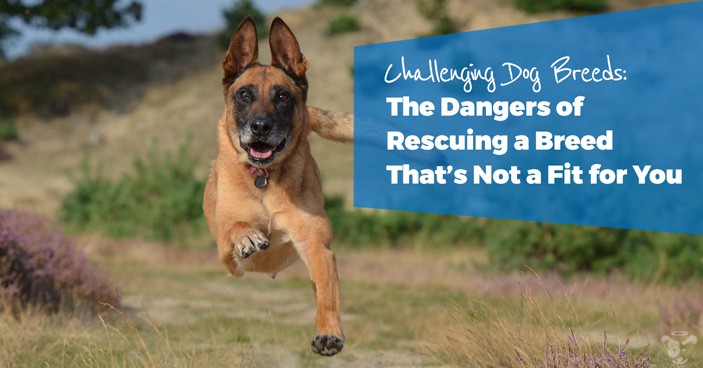

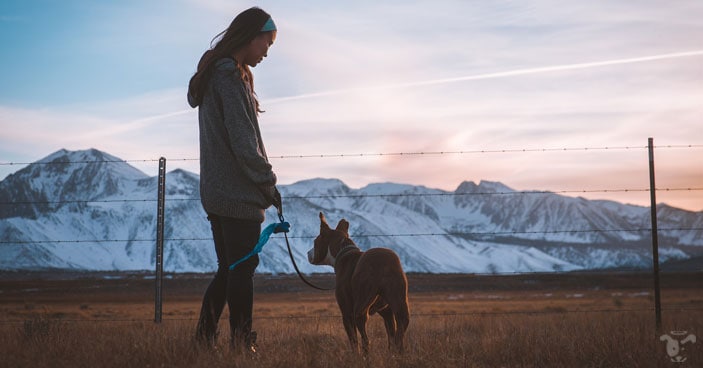



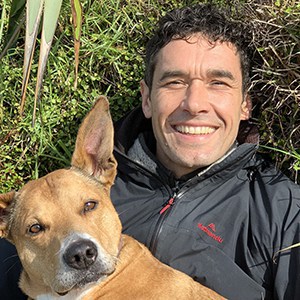



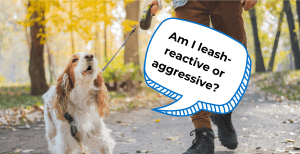
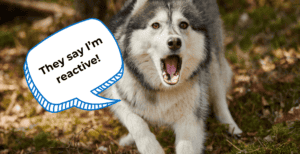
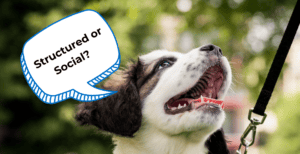


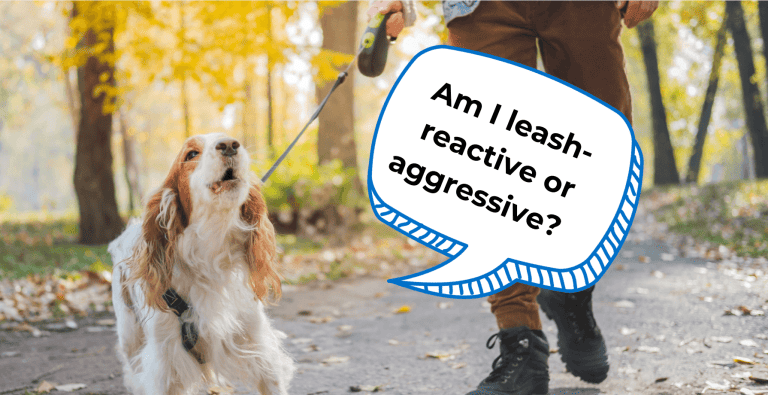

4 Responses
I have adopted a 10 yr, old min pin , owner died, wife taken to nursing home dog dropped off at shelter by POA . HE IS MOST AFFECTIONATE TO ME VERY MUCH A LAP DOG AT HOME. He gets along with my cats( tolerates them even to share my lap) .
However his barking does embarrass me. He growls and barks with someone coming in front door. Does warm up if they ignore him for awhile, but most people reach out to pet him etc. very good house and crate manners. He is slowly learning the 5 rules and to leash walk and sit. I am hopeful you methods will help us. Thanks
Hi Nancy, it sounds very much like our dog has started to believe that it’s his job to protect his pack/family. His barking is an alert to a potential danger entering the home, but there is a way you can encourage him to stop. I would ask guests and visitors to delay greeting him (no eye contact or speaking to) until he is calm and relaxed in their presence. If he barks at them calmly remove him from the room until he is quite and then allow him to return, repeat as many times as necessary. You can even have him on-leash with you for greater control. When he is quiet and totally relaxed in your guest’s presence then you can ask them to invite him to them to say ‘hi’.
We definitely cover this issue on my membership website TheOnlineDogTrainer.com…..maybe take a look, we have a special offer on at the moment. All the Best, Doggy Dan
This is so true. We took a 14 month old puppy that needed a new home after we lost our beloved old dog. We have had two long-lived dogs – a rottweiler/staffy cross and a kelpie/malamute cross. These dogs were wonderful additions to our family and we had no second thoughts taking a kelpie/roo dog cross puppy. However, we are now more than thirty years older, retired and with less energy. Our boy is now 8 months old and full of life and energy. We live next to the bush with lots of walking tracks but are still working on him not pulling on the leash on our walks. We are playing lots of games with him and he has improved in behaviour and is so eager to please. We love him lots and he is ours for good, but can see that a smaller, quieter dog would have been easier for us and our puppy might have had a more energetic owner.
Hi Denise, thanks for sharing your story!
It can be a bit of a hard realisation to arrive at for many owners, especially those who may be loyal to a particular breed or size of dog. I always try to provide information that may be helpful not just now, but also in the future, and it’s sometimes things that owners have never thought about. It sounds like you’re on the right track with your boy. He is still young and learning about the world around him and where he fits into his family. The best piece of advice I can give is to provide him with clear and consistent information…..and remember to work at his pace. All the Best, Doggy Dan